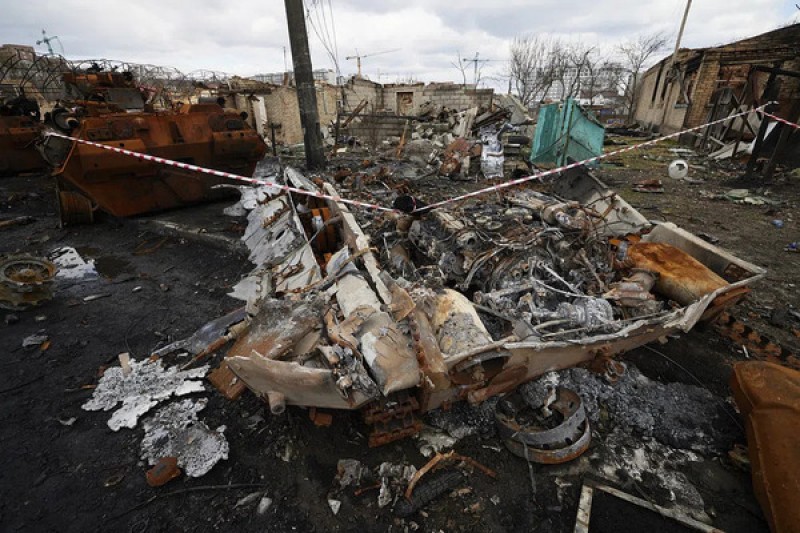“The Commission is also concerned about allegations of genocide in Ukraine. For instance, some of the rhetoric transmitted in Russian state and other media may constitute incitement to genocide,” Chair of the Commission of Inquiry on Ukraine, Erik Møse, said addressing the United Nations Human Rights Council (OHCHR) in Geneva, which founded the three-men commission.
He added that the commission’s investigation into the allegations is underway.
The OHCHR voiced grave concern over the magnitude and intensity of Russian armed troops’ crimes in Ukraine, emphasizing the necessity for accountability.
Møse also elaborated other findings of the Commission which visited Ukraine more than 10 times, and underlined a concern over the “continuous evidence of war crimes committed by the Russian armed forces in Ukraine.”
“The Commission is now undertaking more in-depth investigations regarding unlawful attacks with explosive weapons, attacks affecting civilians, torture, sexual and gender-based violence, and attacks on energy infrastructure,” he said.
The body also reported to the Human Rights Council that it had recorded explosive weapons assaults on residential structures, a functioning medical institution, a railway station, a restaurant, stores, and commercial warehouses.
“These attacks led to civilian casualties, the damage or destruction of key facilities, and the disruption of essential services and supplies,” it said.
The report highlighted the widespread and systematic use of torture by Russian armed forces against people accused of being Ukrainian armed forces informants, which resulted in the victim’s death in certain cases, as the investigation in the Kherson and Zaporizhzhia regions indicated.
The commission also stated that it has continued investigating specific cases of suspected transfers of unaccompanied Ukrainian children to the Russian Federation by Russian authorities, citing “a lack of clarity and transparency on the full extent, circumstances, and categories of children transferred.”



